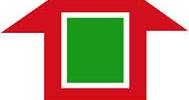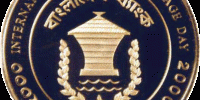Islamic Banking Concepts:-
Islamic Banking is the banking activity that is consistent with the principles of sharia law and its practical application through the development of Islamic economics. Sharia prohibits the fixed or floating payment or acceptance of specific interest or fees (known as riba, or usury) for loans of money. Investing in businesses that provide goods or services considered contrary to Islamic principles is also haraam(“sinful and prohibited”). Although these principles have been applied in varying degrees by historical Islamic economies due to lack of Islamic practice, only in the late 20th century were a number of Islamic banks formed to apply these principles to private or semi-private commercial institutions within the Muslim community.
Objectives of Islamic Banking:-
An Islamic Bank is a financial institution that operates with the objective to implement and materialize the economic and financial principles of Islam in the banking area.
The main objectives of Islamic Banking are:
- To conduct interest – free banking.
- To establish participatory banking instead of banking on debtor – creditor – creditor relationship.
- To invest through different modes permitted under Islamic Shariah.
- To accept deposits on profit – loss sharing basis.
- To establish welfare oriented banking system.
- To extend co-operation to the poor, the helpless and the low – income group for their economic enlistment.
- To play a vital role in human development and employment generation.
Islamic Banking Movement Throughout the world:-
The establishment of the Islamic Development Bank (IDB) in 1975 gave momentum to the Islamic Banking movement. Since the establishment of IDB, a number of Islamic Banking and financial institutions have been established all over the world irrespective of Muslim and non-Muslim countries. Over the past few decades, the Islamic financial industry has rapidly expanded worldwide. Currently about 260 Islamic financial institutions (IFIs) have total combined assets exceeding $250 billion in more than 57 countries. The Islamic financial market is estimated to grow at annual rates averaging 15% in a year. Their rapid growth has gained considerable attention in international financial circles where various market participants have recognized promising potentials.
The Islamic finance market has become extremely sophisticated as well as increasingly competitive. Today, virtually all large western financial institutions are involved in Islamic finance whether through Islamic subsidiaries, “Islamic windows”, or the marketing of Islamic products. In recent years, a range of new Islamic products have appeared, such as Islamic bonds (or sukuk) and Islamic derivatives. While some of those products are widely accepted, others are still controversial.
Islamic Banking Movement in Bangladesh:-
Bangladesh is the third largest Muslim country in the world with around 135 million populations of which 90 percent are Muslim. The hope and aspiration of the people to run banking system on the basis of Islamic principle came into reality after the OIC recommendation at its Foreign Ministers meeting in 1978 at Senegal to develop a separate banking system of their own. After 5 years of that declaration, in 1983, Bangladesh established its first Islamic bank. At present, out of 49 banks in Bangladesh, 7 full fledged Islamic Banks and 19 Islamic Banking branches of 9 conventional banks are working in the private sector on the basis of Islamic Shariah. Islamic banks in Bangladesh since their inception have been gaining popularity in spite of some problems in their operation.

















